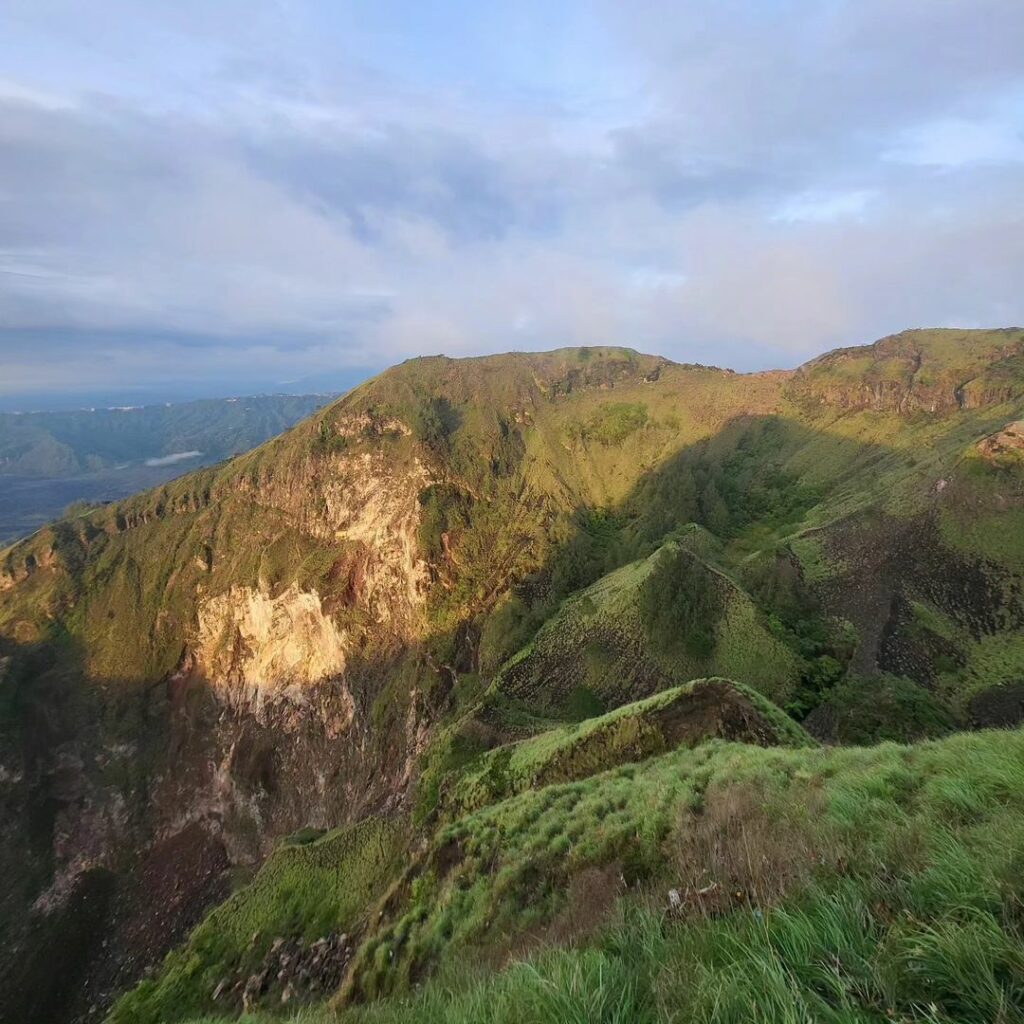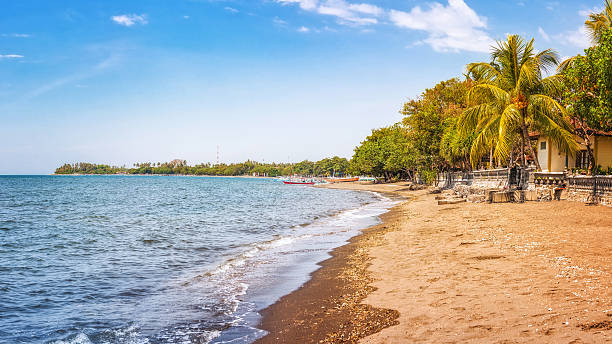Bali on a Budget: 15 things to know before going to Bali, Indonesia

Are you dreaming of a Bali getaway without breaking the bank? Unveiling the secrets to a budget-friendly Balinese adventure is like discovering hidden treasures on this tropical island. If you’re a traveler seeking both frugality and cultural richness, you’re in for a treat. Dive into our guide as we unfold essential tips, from navigating the vibrant streets of Bali to embracing the lush beauty of the rainy season.
Whether you’re a savvy explorer, a cultural enthusiast, or someone eager to indulge in local delights, these 15 insights will pave the way for an affordable yet unforgettable experience. Let’s embark on this budget-friendly Bali journey together, where every penny saved contributes to a more immersive and authentic exploration of Indonesia’s paradise.
1. Check Your Vaccinations are Up-to-Date before Traveling to Indonesia



Before visiting on your journey to Bali, it is crucial to prioritize your health and well-being. Checking that your vaccinations are up-to-date is the first step in ensuring a safe and enjoyable travel experience. Indonesia, like many tropical destinations, may pose health risks that can be mitigated through proper vaccination.
Understanding the Importance of Vaccinations: Vaccinations are essential to protect yourself from preventable diseases that may be prevalent in the region. In the case of Indonesia and Bali, certain vaccines are recommended to safeguard against diseases such as Hepatitis A and B, Typhoid, and Japanese Encephalitis, and routine immunizations like measles, mumps, and rubella.
Health Risks in Indonesia: Indonesia is a country with diverse landscapes and ecosystems but also has health challenges. Mosquito-borne diseases like dengue fever and malaria are prevalent in some areas. Ensuring you are vaccinated protects you and contributes to the overall health and safety of the local community.
Consulting with Healthcare Professionals: It’s imperative to consult with your healthcare provider or a travel medicine specialist well in advance of your trip. They can assess your medical history, current health status, and specific travel itinerary details to provide personalized recommendations on necessary vaccinations and health precautions.
Updating Routine Immunizations:Apart from specific travel vaccines, ensure that routine immunizations, such as tetanus and influenza, are up-to-date. This comprehensive approach fortifies your immune system against a range of potential health threats.
Staying Informed on Health Alerts: Stay informed about any health alerts or advisories for the region. The Centers for Disease Control and Prevention (CDC) and the World Health Organization (WHO) provide valuable information on travel health. Check for updates and follow any recommendations or guidelines they provide.
By taking proactive steps to ensure your vaccinations are up-to-date, you not only safeguard your health but also contribute to a responsible and sustainable travel experience in Bali. Remember that prevention is key, and a healthy traveler is better equipped to explore and appreciate the beauty of this enchanting destination.
Bali travel quiz
2. Don’t write off the Rainy season


While the allure of sunny skies and clear weather is often associated with travel, it’s essential not to dismiss the rainy season when planning your trip to Bali. The rainy season typically occurs from November to March, bringing higher humidity and increased precipitation. Contrary to common travel instincts, there are compelling reasons to embrace Bali during this period.
Understanding Bali’s Rainy Season:
- Lush Landscapes: The rainy season transforms Bali into a lush, green paradise. The landscape comes alive with vibrant vegetation, and the island’s natural beauty reaches its peak.
- Fewer Tourists: As many travelers tend to avoid the rainy season, you can benefit from fewer crowds and lower prices on accommodations and activities. Enjoying Bali’s attractions with more space and tranquility is a unique experience.
- Cultural Celebrations: The rainy season coincides with some of Bali’s most significant cultural celebrations and festivals. Witnessing these events provides an authentic glimpse into the island’s rich traditions.
- Surfing Opportunities: The rainy season brings excellent surf conditions to Bali’s western coasts. If you’re a surfing enthusiast, this can be an ideal time to catch some impressive waves.
Tips for Embracing the Rainy Season:
- Pack Accordingly: Bring waterproof gear, including a quality rain jacket, waterproof shoes, and a compact umbrella, to stay comfortable during occasional downpours.
- Flexible Itinerary: Plan activities with flexibility in mind. While rain showers can be brief, having a more adaptable schedule allows you to make the most of the breaks in weather.
- Indoor Attractions: Explore Bali’s indoor attractions during rainy spells. Visit museums, art galleries, or indulge in spa and wellness activities.
- Local Cuisine Delights: Use the rainy weather as an opportunity to savor Bali’s diverse culinary offerings. Enjoy a leisurely meal in a cozy restaurant or try local dishes at a bustling warung.
- Photography Opportunities: The rain enhances the island’s visual appeal, creating unique photography opportunities. Capture the beauty of rain-soaked landscapes and vibrant cultural scenes.
3. Use Google Maps
When navigating the diverse and captivating landscapes of Bali, Google Maps becomes an indispensable tool for travelers. This user-friendly application offers real-time navigation, helping you effortlessly explore the island’s winding streets, hidden gems, and popular attractions. From locating your accommodation and finding local eateries to planning efficient routes, Google Maps ensures you stay on track during your Bali adventure.
Additionally, the app provides valuable information about transportation options, estimated travel times, and user reviews, making it a reliable companion for both the well-planned itinerary and spontaneous discoveries. Leveraging the power of Google Maps enhances your travel experience, offering convenience and confidence as you navigate the enchanting terrain of Bali.
4. Culture is on Every Corner


Bali is a treasure trove of culture, and its essence can be found at every turn. From vibrant ceremonies and traditional dance performances to intricately designed temples and daily offerings, the island immerses visitors in a rich cultural tapestry.
Balinese people take immense pride in their traditions, and you’ll often witness locals participating in religious rituals or crafting beautiful handwoven offerings. Exploring the streets unveils the soul of Bali, where every corner tells a story of artistry, spirituality, and community.
Engaging with the local culture, respecting customs, and participating in cultural events contribute to a more meaningful and immersive experience on this enchanting island.
5. Get a Local SIM Card
Staying connected while in Bali is made convenient by obtaining a local SIM card. Upon arrival, various telecom providers offer affordable prepaid SIM cards that provide reliable network coverage across the island. This ensures you have access to maps, social media, and communication apps, enabling seamless navigation and sharing of your travel experiences.
Having a local number also facilitates easier communication with locals, tour operators, and accommodations. Investing in a local SIM card is a practical and cost-effective way to stay connected throughout your Bali adventure.
6. For Women – If You’re on Your Period?
For female travelers, managing menstruation while exploring Bali requires some thoughtful preparation. While sanitary products are widely available in urban areas, it’s advisable to bring a sufficient supply of your preferred items. Additionally, some rural areas may have limited options, so planning is key.
Respect local customs by disposing of sanitary products properly, as plumbing systems may not accommodate flushing. Many public spaces and accommodations are equipped with trash bins for this purpose. Carrying hand sanitizer and tissues is advisable for maintaining hygiene.
Engaging in open conversations with fellow female travelers or seeking advice from locals can provide valuable insights and make your experience more comfortable during your time in Bali.
7. Health and Safety


Prioritize your well-being by staying informed about health guidelines and vaccinations before your Bali trip. Carry necessary medications, use insect repellent to guard against mosquitoes, and ensure you have travel insurance for emergencies. Drink bottled or purified water, practice sun safety, and be cautious with street food to avoid stomach issues.
8. Packing Essentials – Pack Light, Wear Light!
Efficient packing is key. Bali’s warm climate calls for lightweight clothing, swimsuits, and comfortable footwear. Don’t forget essentials like sunscreen, a hat, sunglasses, and a reusable water bottle. Pack a small first aid kit, including basic medicines, just in case. Consider the activities you’ll engage in and pack accordingly, keeping it light for ease of movement.
9. Transportation Tips






Navigating the diverse landscapes of Bali requires a strategic approach to transportation. From bustling urban areas to serene rural landscapes, understanding the available options and planning your movements can greatly enhance your overall travel experience.
- Choose Reliable Transportation: Opt for reputable transportation services, such as well-known taxi companies or trusted ride-sharing apps. This ensures safety and minimizes the risk of scams.
- Consider Local Transport: Embrace the local experience by using Bali’s public transportation options. Buses and shared vans are economical choices for longer distances, providing a glimpse into daily life on the island.
- Renting Scooters: Renting a scooter is a popular and flexible way to explore Bali. However, prioritize safety by always wearing a helmet, adhering to traffic rules, and checking the condition of the scooter before renting.
- Explore on Foot: Many of Bali’s attractions are best explored on foot. Walking allows you to immerse yourself in the surroundings, discover hidden gems, and appreciate the local culture at a leisurely pace.
- Engage with Locals: Seek advice from locals on the best transportation options and routes. They can offer insights into efficient and cost-effective ways to get around, contributing to a more authentic experience.
- Be Mindful of Traffic Conditions: Bali’s traffic can vary, especially during peak hours. Be flexible with your schedule, and if possible, plan your activities during off-peak times to avoid congestion.
- Book Transportation in Advance: For longer journeys or special excursions, consider booking transportation in advance. This not only ensures availability but can also lead to better deals and a smoother travel experience.
- Prioritize Safety: Whether you’re traveling by car, scooter, or on foot, prioritize safety. Be cautious on the roads, follow traffic rules, and use well-lit and populated routes, especially during the evening.
By incorporating these transportation tips into your Bali adventure, you can navigate the island with ease, efficiency, and a sense of adventure, enhancing the overall enjoyment of your journey.
10. Behave Respectfully
Respect for local customs and traditions is paramount. Cover up appropriately when visiting temples, and be mindful of your actions in the best-sacred places. Balinese people appreciate polite behavior, so greet with a smile and show gratitude. Learning a few basic Indonesian phrases demonstrates cultural respect and enhances your interactions.
11. Don’t Be Afraid to Haggle, but Do It Respectfully
Haggling is common in Bali, especially in markets. While negotiating prices, maintain a friendly and respectful demeanor. Understand the local economic context and strike a fair deal. Bargaining is part of the culture, but being considerate fosters positive interactions. Enjoy the process, but always remember the importance of treating vendors with respect.
12. Eat, Drink, Stay, and Shop Locally


Immerse yourself in Bali’s culture by patronizing local establishments. Explore traditional warungs for authentic cuisine, support local artisans when shopping, and consider staying in family-run guesthouses or homestays. This not only fosters a more genuine connection with the community but also contributes to the local economy, promoting sustainable tourism.
13. Carry Some Loose Change
In Bali, having small denominations is practical for various transactions. Many local vendors, particularly in markets or smaller establishments, may not have sufficient change for larger bills. Carrying some loose change ensures smoother transactions, allowing you to enjoy street food, local markets, and other small purchases without inconvenience.
14. Get Around by Moped (But Always Wear a Helmet)
Exploring Bali by moped is a popular and cost-effective choice. It offers flexibility and ease in navigating through traffic and narrow streets. However, safety is paramount. Always wear a helmet, adhere to traffic rules, and exercise caution.
Rent from reputable providers, check the condition of the moped and ensure you have the necessary licenses. Riding a moped provides a unique and adventurous way to experience the beauty of Bali.
15. There is a No-Sex-Before-Marriage Law
It’s essential to be aware of the cultural and legal norms in Bali. Indonesia, including Bali, has conservative views on pre-marital relationships. While many tourists may not be directly impacted, it’s respectful to avoid public displays of affection.
If staying in accommodations, particularly homestays or family-run places, understanding and adhering to local customs regarding relationships is advised. Being mindful of these cultural nuances contributes to a more harmonious and respectful experience in Bali.
Conclusion.
Planning on a budget-friendly adventure to Bali, Indonesia, requires a thoughtful blend of cultural awareness, practical preparation, and a willingness to embrace the unique experiences the island has to offer. From ensuring your vaccinations are up-to-date and navigating the enchanting streets with Google Maps to appreciating the lush landscapes during the rainy season, each aspect contributes to a holistic and fulfilling travel experience.
Remember to pack light, prioritize health and safety, and engage respectfully with the local culture. Utilizing local services, from accommodation and dining to transportation, not only supports the community but also enhances the authenticity of your journey.
Whether savoring local cuisine, exploring on a moped, or navigating through markets with loose change, these budget considerations are the threads that weave together a tapestry of memories in Bali. Additionally, respecting cultural norms, such as the no-sex-before-marriage law, ensures a harmonious and considerate interaction with the local way of life.
How much did you like Our detailed 15 Things to know Before Going to Bali, Indonesia? Review Also, please share these Blogs with your friends on social media.
Recommended
- The Best Time to Visit Bali
- 25+ Best Places to Visit in Bali for First-time Visitors
- Lovina Beach Bali
- Flyboard in Kota Denpasar Bali
- Best Place to Scuba Dive in Bali
- Nelayan Beach in Dalung, Kuta Bali
- Explore Berawa Beach Bali
- Echo Beach is a Perfect Place in Bali
- 2 Weeks Couples Vacation in Bali
- Kuta Beach Bali Indonesia
- Top 5 Best Spots for River Rafting & Tubing in Bali
- Gunung Payung Beach Bali

Meet David Hoper, a passionate travel Blog writer with 7+ years of experience in travel content. Through his exemplary storytelling and engaging narratives, he shares his experiences and brings destinations to life. With a keen eye for detail and a love for exploration, he has cultivated a diverse portfolio of travel blogs that inspire and inform readers worldwide.








